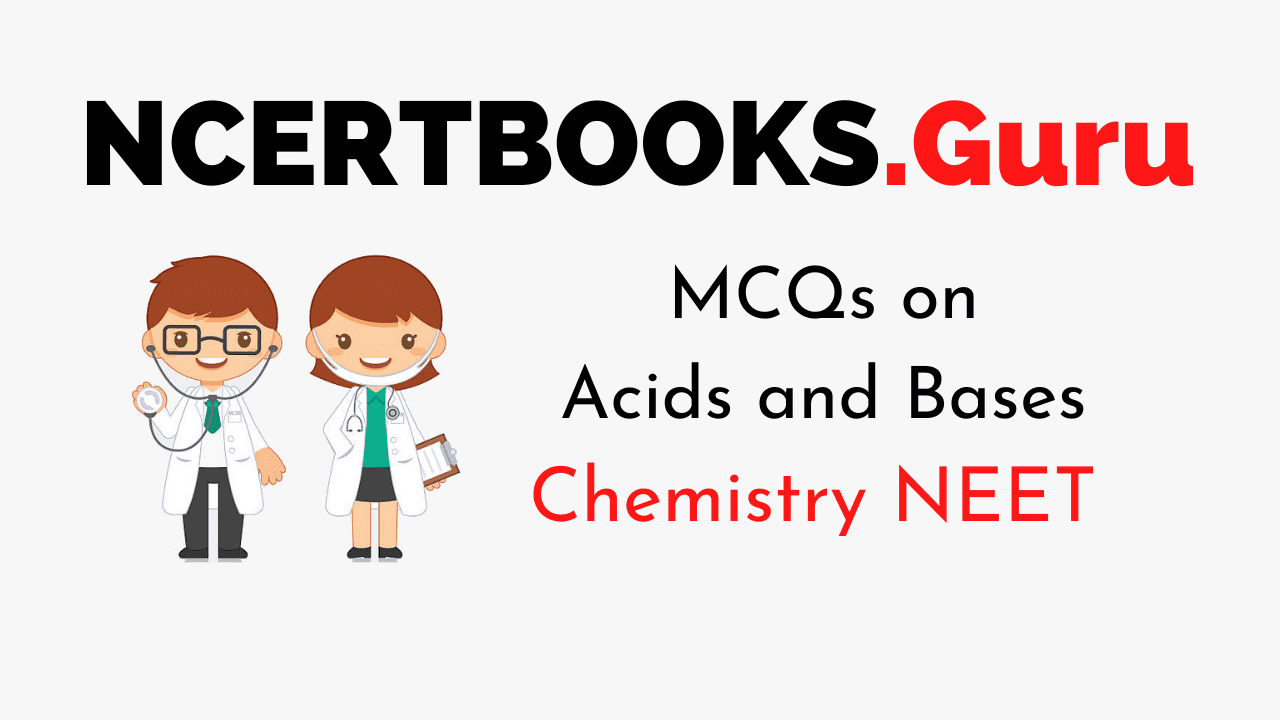NEET Chemistry is the scoring paper in the medical entrance examination. Here, you will discover the NEET Chemistry MCQ Questions for all Concepts as per the latest syllabus. Practice more on a regular basis with these NEET Chemistry objective questions on air pollution and improve your subject knowledge & problem-solving skills along with time management. NEET Chemistry Acids and Bases Multiple Choice Questions make you feel confident in answering the question in the exam & increases your scores to high.
MCQs on Acids and Bases
1. Bleaching powders chemical name is
(a) calcium hypo oxychloride
(b) calcium oxychloride
(c) calcium chloride
(d) calcium chloro oxide
Answer
Answer: (b)
2. The ratio of the water molecule in plaster of paris and gypsum is
(a) 3:1
(b) 1:3
(c) 1:4
(d) 4:3
Answer
Answer: (c)
3. Baking powder is
(a) sodium carbonate + sodium tartaric
(b) sodium bicarbonate + sodium tartaric
(c) sodium carbonate + tartaric acid
(d) sodium carbonate + sodium benzoate
Answer
Answer: (b)
4. Gastric juice contains HCl which is one example of
(a) inorganic acid
(b) organic acid
(c) soft organic acid
(d) strong inorganic acid
Answer
Answer: (a)
5. When milk of magnesia reacts with acetic acid it produces
(a) basic salts
(b) acidic salts
(c) neutral salt
(d) complex salt
Answer
Answer: (c)
6. Which of the following phenomena will occur when a small amount of acid is added to water?
(a) dilution
(b) neutralisation
(c) salt formation
(d) ionization
Answer
Answer: (a, d)
7. Brine is used for industrial production of
(a) NaOH
(b) KOH
(c) bleaching powder
(d) none of the above
Answer
Answer: (a)
8. When base reacts with the non-metal oxide
(a) it neutralizes each other
(b) it creates fire
(c) it produces acidic salts
(d) it produces basic salts
Answer
Answer: (a)
9. Corrosive effect on the skin is caused by
(a) acids
(b) bases
(c) water
(d) mercury
Answer
Answer: (a, b)
10. The acid used for the manufacture of fertilizers and explosives is
(a) nitric acid
(b) sulfuric acid
(c) phosphoric acid
(d) hydrochloric acid
Answer
Answer: (a)
